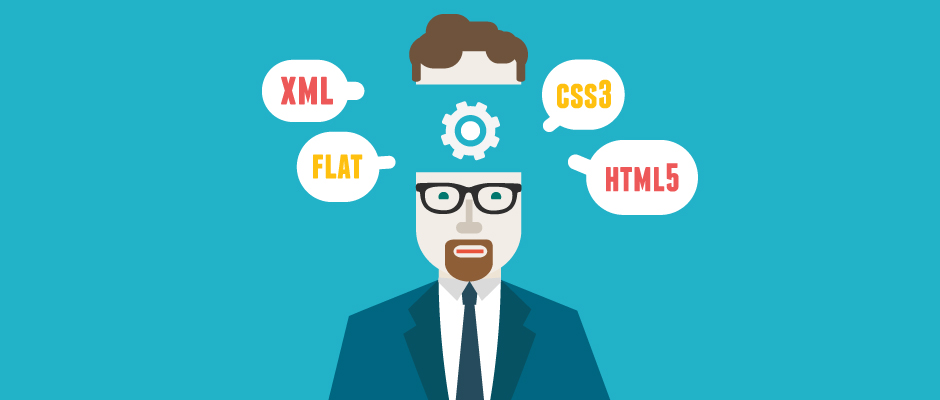Understanding the Role of Bundlers in Frontend
Jul 24, 2025 am 03:09 AMBundlers are the core tools in modern front-end development. Its main functions include: 1. Module packaging, packaging modular code such as ES Modules into a format that can be run by the browser; 2. Resource processing, unified management and optimization of JS, CSS, pictures and other resources; 3. Code optimization, implementing compression, Tree Shaking, code segmentation and other functions to improve performance; 4. Provide development server and hot update functions to improve development experience. Common tools such as Webpack are suitable for large projects and in-depth customization, Vite is suitable for rapid development in modern browser environments, and Rollup is more suitable for building npm packages or component libraries. Bundler is especially important when using modular development, introducing third-party libraries, building complex projects or optimizing production environments, but simple static pages may not be required.

In front-end development, the role of packaging tools (Bundlers) is becoming increasingly important. They are not only tools for merging and compressing code, but also an indispensable part of building modern web applications. If you are writing a React, Vue or ordinary JavaScript project, you may or will use package tools like Webpack, Vite, and Rollup.

What is a Bundler?
Simply put, Bundler is a tool that will package multiple front-end files (such as JS, CSS, pictures, etc.) into fewer files for the browser to load.
For example, you have written more than a dozen modular JS files, which are written separately during the development stage, but they will definitely not be loaded one by one when they are finally launched, which is too slow. Bundler is responsible for "sewing" these files and doing optimizations, such as compression, splitting, loading on demand, etc.
Common Bundlers include:

- Webpack : Powerful functions, rich plug-in ecosystem, suitable for large-scale projects
- Vite : Focusing on extremely fast cold start and hot updates, suitable for environments natively supported by modern browsers and ES modules
- Rollup : More suitable for packaging libraries and outputs cleaner and simpler packages
What are the core functions of Bundler?
- Module packaging
- Modern front-end code mostly uses modular structures (such as ES Modules), and Bundler is responsible for identifying these module dependencies and packaging them into a format that can run in the browser.
- Resource processing
- Not only handles JS, but also handles resources such as CSS, pictures, fonts, etc. For example, use Webpack's
file-loaderorurl-loaderto process image resources, automatically optimize and generate paths.
- Not only handles JS, but also handles resources such as CSS, pictures, fonts, etc. For example, use Webpack's
- Code optimization
- Compressing code, deduplication, Tree Shaking (removing useless code), code splitting and other functions are all key to improving performance.
- Development server and hot updates
- Many Bundlers come with their own development servers, which support hot updates (HMR), allowing you to refresh the page locally instead of full reloading after modifying the code during development, making the experience smoother.
When do you need a Bundler?
Not all front-end projects require a Bundler. For example, if you just write a simple HTML JS page, it is enough to directly refer to external scripts. But in the following scenarios, Bundler is very useful:
- Modular development methods (such as import/export)
- Third-party libraries need to be packaged (such as React, Vue)
- The project structure is complex, and I hope to split the code and lazy load it
- It is necessary to build a production version, perform compression, optimization and other processing
Some developers will think that "Vite can run without packaging now." That's right. Vite uses the browser's native support for ES Modules, and does not need to be packaged during development. But when it comes to production environment, most of the time, you still have to package and output an optimized version.

How to choose the right Bundler?
Which Bundler to choose actually depends on your project type and team habits:
- If you are starting a new project from scratch and the target browser supports ES Modules, Vite is a good choice, fast and lighter configuration.
- If you are maintaining an old project, or need to deeply customize the construction process, Webpack is more mature and stable, and the plug-in ecosystem is richer.
- If you want to publish an npm package, or build a component library, Rollup is more suitable, with smaller output and clearer structure.
In addition, many modern frameworks (such as Vue CLI and Create React App) already have built-in packaging tools, and you may not have to use Webpack yourself at all, unless you want to do high-end customization.
Basically that's it. Although packaging tools seem to be a "behind the scenes", they directly affect the project's development efficiency and online performance. Understanding its basic principles and uses is necessary for every front-end developer.
The above is the detailed content of Understanding the Role of Bundlers in Frontend. For more information, please follow other related articles on the PHP Chinese website!

Hot AI Tools

Undress AI Tool
Undress images for free

Undresser.AI Undress
AI-powered app for creating realistic nude photos

AI Clothes Remover
Online AI tool for removing clothes from photos.

Clothoff.io
AI clothes remover

Video Face Swap
Swap faces in any video effortlessly with our completely free AI face swap tool!

Hot Article

Hot Tools

Notepad++7.3.1
Easy-to-use and free code editor

SublimeText3 Chinese version
Chinese version, very easy to use

Zend Studio 13.0.1
Powerful PHP integrated development environment

Dreamweaver CS6
Visual web development tools

SublimeText3 Mac version
God-level code editing software (SublimeText3)

Hot Topics
 An article about memory control in Node
Apr 26, 2023 pm 05:37 PM
An article about memory control in Node
Apr 26, 2023 pm 05:37 PM
The Node service built based on non-blocking and event-driven has the advantage of low memory consumption and is very suitable for handling massive network requests. Under the premise of massive requests, issues related to "memory control" need to be considered. 1. V8’s garbage collection mechanism and memory limitations Js is controlled by the garbage collection machine
 PHP and Vue: a perfect pairing of front-end development tools
Mar 16, 2024 pm 12:09 PM
PHP and Vue: a perfect pairing of front-end development tools
Mar 16, 2024 pm 12:09 PM
PHP and Vue: a perfect pairing of front-end development tools. In today's era of rapid development of the Internet, front-end development has become increasingly important. As users have higher and higher requirements for the experience of websites and applications, front-end developers need to use more efficient and flexible tools to create responsive and interactive interfaces. As two important technologies in the field of front-end development, PHP and Vue.js can be regarded as perfect tools when paired together. This article will explore the combination of PHP and Vue, as well as detailed code examples to help readers better understand and apply these two
 Exploring Go language front-end technology: a new vision for front-end development
Mar 28, 2024 pm 01:06 PM
Exploring Go language front-end technology: a new vision for front-end development
Mar 28, 2024 pm 01:06 PM
As a fast and efficient programming language, Go language is widely popular in the field of back-end development. However, few people associate Go language with front-end development. In fact, using Go language for front-end development can not only improve efficiency, but also bring new horizons to developers. This article will explore the possibility of using the Go language for front-end development and provide specific code examples to help readers better understand this area. In traditional front-end development, JavaScript, HTML, and CSS are often used to build user interfaces
 Is Django front-end or back-end? check it out!
Jan 19, 2024 am 08:37 AM
Is Django front-end or back-end? check it out!
Jan 19, 2024 am 08:37 AM
Django is a web application framework written in Python that emphasizes rapid development and clean methods. Although Django is a web framework, to answer the question whether Django is a front-end or a back-end, you need to have a deep understanding of the concepts of front-end and back-end. The front end refers to the interface that users directly interact with, and the back end refers to server-side programs. They interact with data through the HTTP protocol. When the front-end and back-end are separated, the front-end and back-end programs can be developed independently to implement business logic and interactive effects respectively, and data exchange.
 How to solve cross-domain issues? A brief analysis of common solutions
Apr 25, 2023 pm 07:57 PM
How to solve cross-domain issues? A brief analysis of common solutions
Apr 25, 2023 pm 07:57 PM
Cross-domain is a scenario often encountered in development, and it is also an issue often discussed in interviews. Mastering common cross-domain solutions and the principles behind them can not only improve our development efficiency, but also perform better in interviews.
 C# development experience sharing: front-end and back-end collaborative development skills
Nov 23, 2023 am 10:13 AM
C# development experience sharing: front-end and back-end collaborative development skills
Nov 23, 2023 am 10:13 AM
As a C# developer, our development work usually includes front-end and back-end development. As technology develops and the complexity of projects increases, the collaborative development of front-end and back-end has become more and more important and complex. This article will share some front-end and back-end collaborative development techniques to help C# developers complete development work more efficiently. After determining the interface specifications, collaborative development of the front-end and back-end is inseparable from the interaction of API interfaces. To ensure the smooth progress of front-end and back-end collaborative development, the most important thing is to define good interface specifications. Interface specification involves the name of the interface
 Questions frequently asked by front-end interviewers
Mar 19, 2024 pm 02:24 PM
Questions frequently asked by front-end interviewers
Mar 19, 2024 pm 02:24 PM
In front-end development interviews, common questions cover a wide range of topics, including HTML/CSS basics, JavaScript basics, frameworks and libraries, project experience, algorithms and data structures, performance optimization, cross-domain requests, front-end engineering, design patterns, and new technologies and trends. . Interviewer questions are designed to assess the candidate's technical skills, project experience, and understanding of industry trends. Therefore, candidates should be fully prepared in these areas to demonstrate their abilities and expertise.
 How to use Go language for front-end development?
Jun 10, 2023 pm 05:00 PM
How to use Go language for front-end development?
Jun 10, 2023 pm 05:00 PM
With the development of Internet technology, front-end development has become increasingly important. Especially the popularity of mobile devices requires front-end development technology that is efficient, stable, safe and easy to maintain. As a rapidly developing programming language, Go language has been used by more and more developers. So, is it feasible to use Go language for front-end development? Next, this article will explain in detail how to use Go language for front-end development. Let’s first take a look at why Go language is used for front-end development. Many people think that Go language is a






